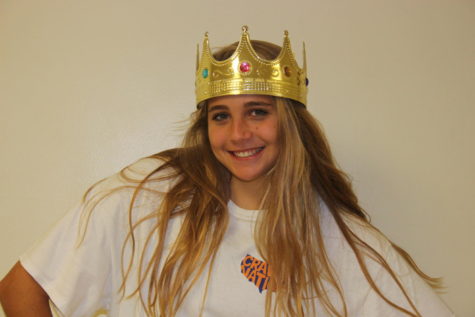A person first
December 1, 2017
I don’t want this to sound like “my manifesto” against LT, because I think the school, teachers and learning environment are great. But, I do have some issues with the student community. Actually, I’m not even going to be vague on this matter. I have an issue with what I heard in the hallway yesterday: “this unit is retarded.”
I hated myself for being so non-confrontational. Instead, I let my blood boil in silence. Maybe this person wasn’t taught that that the R-word, (which should only be referred to as such, if at all) is offensive. It is a swear, actually. Minorities and LGBTQ+ people have been referred to by certain names throughout the decades, many of which were considered offensive to them at the time, and are offensive to everyone in 2017. Most people know not to label others with derogatory terms anymore, because it’s just disrespectful.
Honestly, I’m stating things people should already know. Water is wet, the R-word is offensive…even if your great-grandmother, or anyone in her time period used it, that doesn’t mean you should.
Saying the R-word is offensive in general, but it’s extremely disrespectful and hurtful to people who have special needs. Over Spring Break 2017, my youth group and I traveled to Baton Rouge, Louisiana, to spend a week working with an organization called The Arc. The Arc has over 700 facilities across the U.S. and it improves the quality of life for children and adults with mental and intellectual disabilities through advocacy, services and support. The community in this place was unbelievable; they were optimistic, hilarious, and kind. Every single person there had a dream, ranging from being able to read to finishing college.
You don’t have to spend a week in Baton Rouge to understand that people who have disabilities are exactly like everyone else. They understand and laugh at the same things we do. So, why would anyone think they don’t understand being called the R-word? It’s as simple as paying respect to another person, whether they have a disability or not shouldn’t matter.
What I also learned on my mission trip is the “person first” language. For example, never address someone as a disabled person. They are a person with disabilities. This was the most important thing that was so thoroughly emphasized on this trip: it doesn’t matter if they have disabilities. They’re still a person that deserves respect, and I hope everyone, especially that kid in the hallway, takes this to heart.





















![Movie poster for '[Rec]" (2007).](https://www.lionnewspaper.com/wp-content/uploads/2023/04/rec-640x900.jpg)


